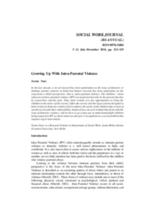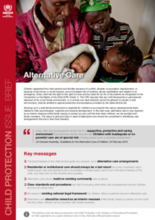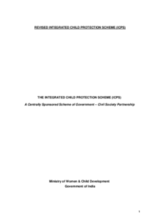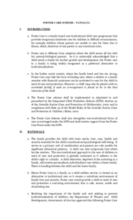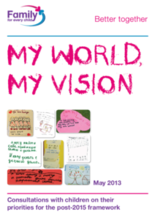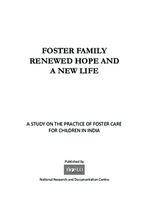childrens_living_arrangement
children_living_without_bio
Displaying 351 - 360 of 391
In the last decade, a lot of research has been undertaken on the issue of domestic or intimate partner violence in India but limited research has been undertaken on the issue from a child’s perspective, that is, intra-parental violence. The children – silent witnesses of intra-parental violence (IPV) are neglected not only by the parents but also by researchers and the state. Thus, there remain very few opportunities to bring the children to the notice of the society. Often the society and the legal systems designed to help victims of domestic violence fail to address the needs of the children due to lack of sensitivity towards their vulnerability. Ample laws do exist in India that deal with the issue of domestic violence, still there is a long way to go to understand the plight of children being exposed to IPV as silent witnesses and give it recognition as a social problem that requires legal intervention.
This issue brief from the UNHCR highlights key messages from UNHCR in regards to alternative care, including the importance of making alternative care arrangements based on the best interests of the child and using residential or institutional care only as a very last resort.
The Integrated Child Protection Scheme (ICPS) of India outlines, and contributes to the implementation of, the Government’s responsibility to establish an effective and efficient child protection system.
This important study on foster care practices in India provides important insight into the history, approaches, challenges and opportunities facing the development of foster care services in the country, presenting a picture of foster care practices across nine Indian states.
India submitted its third and fourth combined report on the implementation of the Convention on the Rights of the Child.
For children separated from their families, the 139 organizations of the South Asia Alliance of Grassroots NGOs (SAAGN) launched the campaign “My Caring Family is My First Right” in June 2013. As part of the campaign, Butterflies, a registered voluntary organization working with street and working children in Delhi, is supporting a new online petition that calls on governments in the region to respect a child’s right to a family.
The state cabinet of Goa in India has approved a foster care scheme to assist children deprived of parental care or of the care of guardians, and in need of protection. These government guidelines set out the purpose of the scheme, criteria for eligibility and procedures to be followed, including the relevant forms.
The state cabinet of Goa, India recently approved a foster care scheme to assist children deprived of parental care or the care of guardians and in need of protection.
The Millennium Development Goals will come to an end in 2015 and discussions are currently taking place on what framework will replace them. Children’s participation is crucial to these discussions. Between July 2012 and March 2013, members of Family for Every Child consulted with children living in seven different countries. This report summarizes the main findings that emerged from these consultations.
This study, a first of its kind in the country as far as we could ascertain, focuses on the foster care services provided by various organisations and institutions in India.

